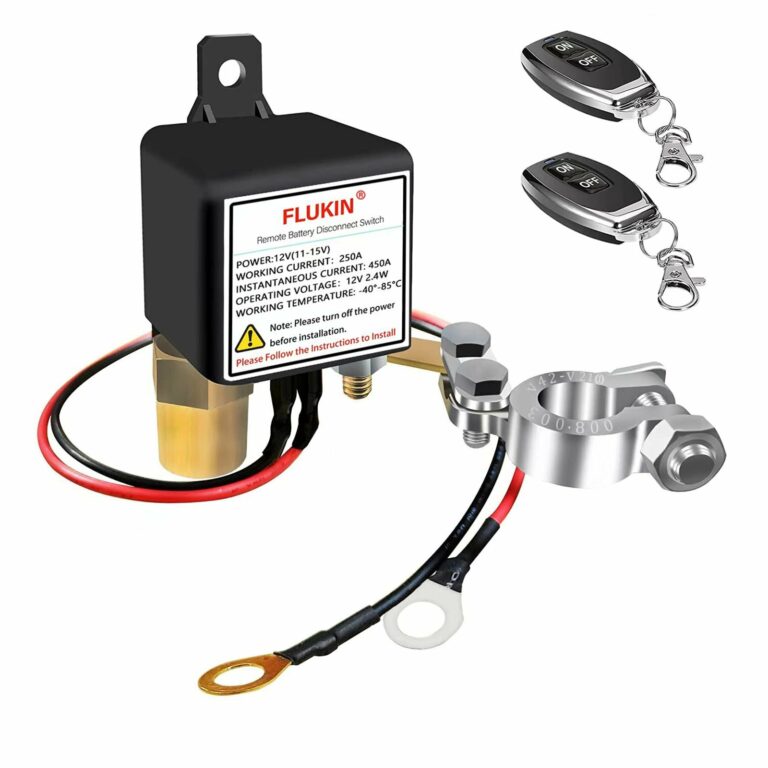What Is Car Battery Voltage? A Comprehensive Guide
Today we discuss Car Battery Voltage. The voltage of your car battery may appear insignificant, but it is a key factor in maintaining your vehicle’s performance. Knowing about car battery voltage is vital for all car owners, as it can aid in identifying and avoiding potential electrical system problems.
This article aims to clarify the concept of car battery voltage and equip you with the knowledge necessary to keep your car’s battery in optimal condition. Let’s delve into the significance of car battery voltage!
Car Battery Voltage:
Car battery voltage is a crucial aspect of your vehicle’s electrical system. It provides the necessary power to start your engine, run various electrical components, and ensure a smooth and reliable driving experience. Understanding car battery voltage is essential for maintaining your vehicle’s performance and avoiding unexpected breakdowns.
What is Car Battery Voltage?
Car battery voltage refers to the electrical potential difference or pressure between the positive and negative terminals of your vehicle’s battery. It is measured in volts (V) and indicates the battery’s overall charge level. The voltage value can vary depending on the type of battery and its state of charge.
Standard Car Battery Voltage
Most standard car batteries operate at a nominal voltage of 12 volts. This voltage is commonly found in vehicles equipped with lead-acid batteries, which are the most traditional type of car battery. However, it’s important to note that the actual voltage can vary depending on the battery’s condition and the level of charge.
Key Factors Affecting Car Battery Voltage:
Several factors can influence the voltage of your car battery:
- State of Charge: The level of charge in the battery directly affects its voltage. A fully charged battery typically has a voltage reading of around 12.6 to 12.8 volts, while a discharged battery may only show around 11.9 volts or lower.
- Battery Age: As a battery ages, its capacity to hold a charge diminishes. This can lead to a decrease in voltage readings.
- Temperature: Extreme temperatures, both hot and cold, can impact battery performance and voltage. Cold temperatures can reduce a battery’s available power, resulting in a lower voltage reading.
- Electrical Load: The electrical load placed on the battery when various components are in use can also affect its voltage. Higher loads may cause a temporary voltage drop.
Why is Car Battery Voltage Important?
Understanding and monitoring your car battery voltage is crucial for several reasons:
Battery Performance
The voltage of your car battery directly relates to its performance. By regularly checking the voltage, you can assess the battery’s health and identify any potential issues. This allows you to take necessary measures, such as recharging or replacing the battery, to avoid unexpected breakdowns.
Starting Reliability
The battery’s voltage is vital for starting your vehicle’s engine. Insufficient voltage can lead to difficulties or complete failure in starting your car. Monitoring the voltage ensures that you have enough power to start your engine reliably, especially during cold weather conditions when the battery’s capacity may be reduced.
Electrical Component Functioning
Various electrical components in your vehicle, including the lights, air conditioning system, radio, and power windows, rely on the car battery for power. Insufficient voltage can cause dim lights, weak audio output, or malfunctioning electronics. By maintaining the battery’s voltage within the optimal range, you can ensure the proper functioning of these components.
Measuring Car Battery Voltage:
To measure your car battery voltage, you can use a multimeter or a dedicated battery tester. Here’s a step-by-step guide:
Using a Multimeter
1. Set the multimeter to the DC voltage setting, typically represented by a “V” with a straight line above it.
2. Connect the red probe to the battery’s positive terminal and the black probe to the negative terminal.
3. Read the voltage value displayed on the multimeter.
4. Compare the reading with the manufacturer’s recommended voltage range to assess the battery’s condition.
Using a Battery Tester
1. Connect the battery tester’s positive and negative leads to the corresponding battery terminals.
2. Follow the instructions provided with the battery tester to initiate the voltage reading.
3. Check the voltage value displayed on the tester against the recommended range.
Maintaining Car Battery Voltage
To ensure optimal car battery voltage and prolong its lifespan, consider the following maintenance tips:
Regular Inspections
Perform visual inspections of your battery to check for any signs of damage, such as corrosion or leaks. Clean the battery terminals if necessary.
Charging the Battery
If your battery voltage falls below the recommended level, recharge it using an appropriate battery charger. Avoid overcharging, as it can damage the battery.
Minimize Electrical Load
Reduce unnecessary electrical load on the battery by turning off lights, radios, or other components when not in use. This helps to preserve the battery’s charge and maintain optimal voltage levels.
Protect from Extreme Temperatures
Extreme temperatures can impact battery performance. Park your vehicle in shaded areas or garages during hot summers and use engine block heaters in cold winters to minimize temperature-related voltage fluctuations.
Car battery voltage plays a significant role in the overall performance of your vehicle. Monitoring and maintaining the optimal voltage levels ensure a reliable and efficient driving experience. By understanding the key factors influencing voltage, measuring it accurately, and following proper maintenance practices, you can extend your battery’s lifespan and avoid unexpected breakdowns. Take care of your car battery, and it will take care of you on the road.
What Voltage Should Car Battery Be?!
Faqs for Car Battery Voltage:
The ideal voltage for a car battery is around 12.6 to 12.8 volts when the engine is off. This indicates a fully charged battery. While the vehicle is running, the voltage should be between 13.7 and 14.7 volts, which shows that the battery is being charged by the alternator. Maintaining the battery within this voltage range ensures optimal performance and longevity.
A low voltage reading on a car battery usually indicates that the battery is discharged and may need to be recharged or replaced. If the voltage drops below 11.8 volts, it signifies a significantly discharged battery that needs immediate attention. Additionally, a consistently low voltage reading could indicate a problem with the charging system or a parasitic drain on the battery.
If the car battery voltage drops too low, it can result in several issues. The starter motor may not have enough power to crank the engine, which can lead to difficulty starting the vehicle. Other electrical components may also malfunction or stop working entirely. Additionally, a severely discharged battery can suffer permanent damage, reducing its overall lifespan.
Yes, overcharging a car battery can damage it. Continuous overcharging can cause the electrolyte in the battery to evaporate, leading to reduced battery life and performance. Overcharging can also lead to the battery becoming hot and potentially leaking or even exploding in extreme cases. It is important to ensure that the charging system is functioning correctly and that the battery is not subjected to excessive voltage for extended periods.
There are a few common causes of a car battery experiencing high voltage. One possible cause is a malfunctioning voltage regulator, which regulates the amount of voltage supplied by the alternator. If the voltage regulator fails, it can result in excessive voltage reaching the battery. Another cause can be a faulty alternator that is producing too much voltage. In these situations, it is recommended to have the charging system inspected and repaired by a professional.
It is a good practice to check your car battery voltage regularly, especially if you notice any signs of battery or electrical system issues. Ideally, you should check the voltage once a month, particularly during extreme weather conditions or after the vehicle has been inactive for a while. Monitoring the battery voltage helps to identify any potential problems early on and allows for timely maintenance or replacement if required.
Yes, extreme temperatures can affect car battery voltage. Cold weather can reduce a battery’s capacity, making it harder to start the engine and decreasing its overall voltage. On the other hand, high temperatures can increase the battery’s self-discharge rate, which can also lead to a drop in voltage. It is important to note that extreme temperature fluctuations can negatively impact a battery’s performance and should be taken into consideration when assessing its voltage levels.
Final Thoughts
Car battery voltage is a crucial factor in determining the overall performance and reliability of a vehicle’s electrical system. The voltage level directly impacts the battery’s ability to start the engine and power various components. Understanding the ideal voltage range, typically between 12.4 and 12.7 volts, is essential for ensuring optimal battery health and longevity. Regularly monitoring and maintaining the battery voltage through proper charging and testing procedures can help prevent unexpected breakdowns and extend the battery’s lifespan. By prioritizing car battery voltage, drivers can ensure a smooth and efficient driving experience while avoiding potential issues on the road.


